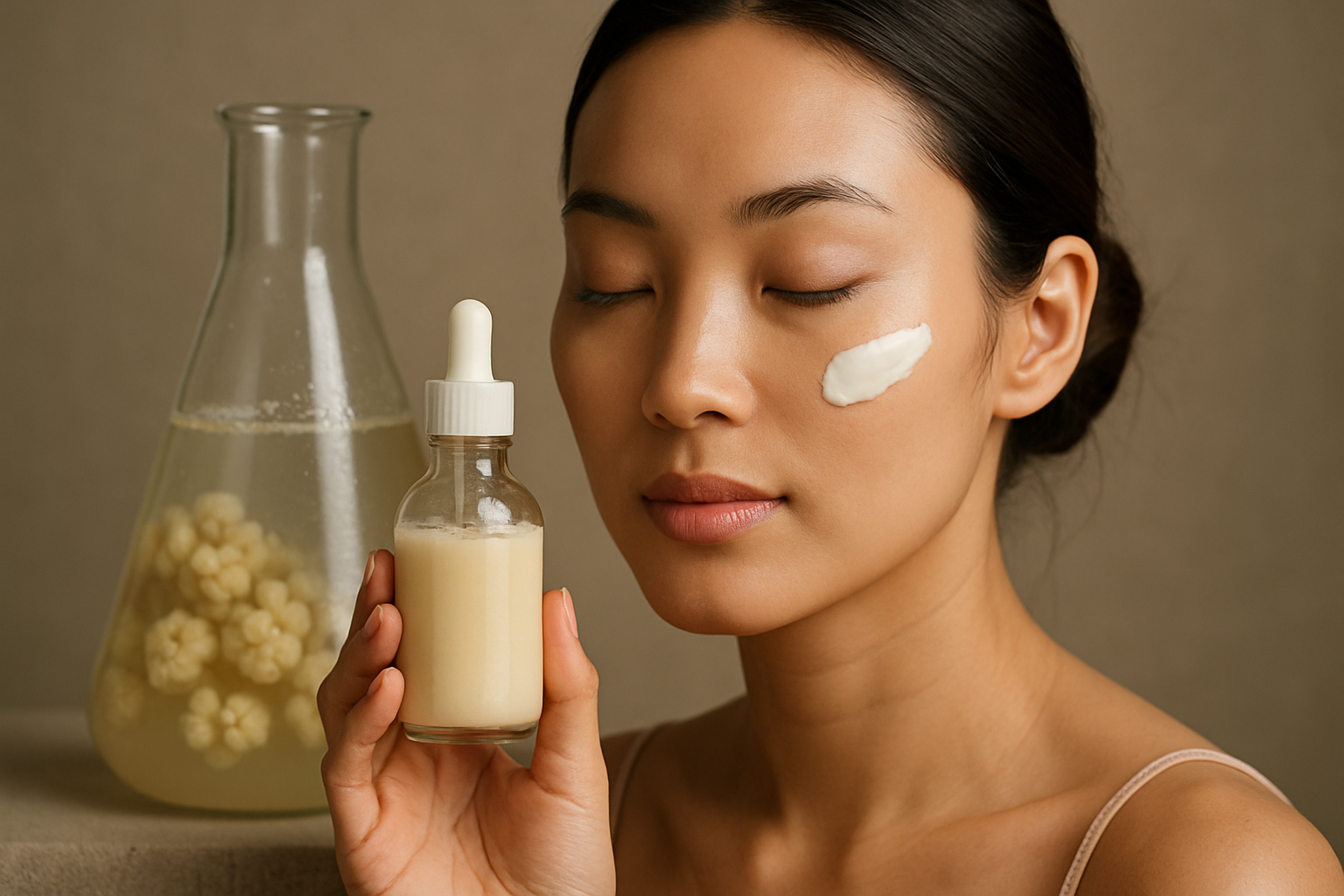Fermentation Facials: The Probiotic Skincare Revolution
In the ever-evolving world of beauty and skincare, a fascinating new trend is emerging that combines the ancient art of fermentation with cutting-edge dermatological science. Fermentation facials, also known as probiotic skincare treatments, are gaining traction among beauty enthusiasts and skincare professionals alike. This innovative approach harnesses the power of beneficial bacteria to nourish, protect, and rejuvenate the skin, offering a natural alternative to traditional chemical-based treatments. As consumers increasingly seek out clean, sustainable beauty solutions, fermentation facials are poised to revolutionize the skincare industry. By tapping into the complex ecosystem of microorganisms that naturally inhabit our skin, these treatments promise to deliver radiant, healthy complexions while supporting the skin's natural defense mechanisms.

The key to fermentation facials lies in their ability to support the skin’s microbiome – the diverse community of microorganisms that live on our skin. A healthy microbiome is essential for maintaining skin barrier function, regulating inflammation, and protecting against harmful pathogens. By introducing probiotic ingredients to the skin, fermentation facials aim to restore balance to the microbiome and promote overall skin health.
Research has shown that certain fermented ingredients can have powerful anti-aging and skin-brightening effects. For example, a study published in the Journal of Cosmetic Dermatology found that fermented red ginseng extract significantly improved skin elasticity and reduced the appearance of wrinkles in human subjects.
The Fermentation Process in Skincare
The process of creating fermented skincare ingredients is both an art and a science. Skincare formulators select specific probiotic strains and combine them with nutrient-rich substrates such as plant extracts, fruit juices, or herbal infusions. These mixtures are then allowed to ferment under controlled conditions for a set period, typically ranging from a few days to several weeks.
During fermentation, the probiotic organisms consume the nutrients in the substrate, producing beneficial compounds such as amino acids, vitamins, and organic acids. These byproducts can have various skincare benefits, including hydration, exfoliation, and antioxidant protection.
One of the most exciting aspects of fermentation in skincare is its ability to enhance the bioavailability of active ingredients. The fermentation process can break down large molecules into smaller, more easily absorbed compounds, allowing the skin to better utilize the beneficial components of the treatment.
Key Ingredients in Fermentation Facials
Fermentation facials often incorporate a diverse array of fermented ingredients, each chosen for its unique skincare benefits. Some popular fermented ingredients include:
-
Saccharomyces ferment filtrate: Derived from yeast, this ingredient is rich in beta-glucan, which has been shown to have powerful moisturizing and skin-soothing properties.
-
Lactobacillus ferment: This probiotic strain produces lactic acid, which can help exfoliate the skin and improve its texture.
-
Galactomyces ferment filtrate: A byproduct of sake fermentation, this ingredient is believed to brighten the skin and improve its overall tone and texture.
-
Fermented plant extracts: Ingredients like fermented ginseng, green tea, or rice bran can offer potent antioxidant protection and anti-aging benefits.
-
Fermented honey: Known for its antibacterial properties, fermented honey can help soothe and protect the skin while providing intense hydration.
The Fermentation Facial Experience
A typical fermentation facial begins with a thorough cleansing of the skin to remove any makeup, dirt, or excess oil. This is followed by the application of a fermented toner or essence to prepare the skin for the treatment.
The main component of the facial is usually a fermented mask or serum, which is gently massaged into the skin to allow for maximum absorption. These products often have a unique texture and scent due to the fermentation process, which can range from light and fresh to rich and earthy.
Many fermentation facials also incorporate specialized massage techniques or tools, such as gua sha stones or facial rollers, to enhance product penetration and stimulate circulation. The treatment may conclude with the application of a fermented moisturizer or facial oil to seal in the benefits of the treatment.
Benefits and Potential Drawbacks
Proponents of fermentation facials claim a wide range of benefits, including:
-
Improved skin hydration and barrier function
-
Enhanced skin brightness and radiance
-
Reduced appearance of fine lines and wrinkles
-
Balanced skin microbiome
-
Soothed and calmed skin, particularly for those with sensitive or acne-prone skin
However, it’s important to note that while many people experience positive results from fermentation facials, individual responses can vary. Some potential drawbacks to consider include:
-
Allergic reactions or sensitivities to specific fermented ingredients
-
Temporary skin purging or breakouts as the skin adjusts to the new treatment
-
Higher cost compared to traditional facial treatments
-
Limited availability in some areas
The Future of Fermentation in Skincare
As research into the skin microbiome continues to advance, it’s likely that we’ll see even more innovative applications of fermentation in skincare. Some emerging trends to watch include:
-
Personalized probiotic skincare: Tailored treatments based on an individual’s unique skin microbiome composition.
-
Synbiotic skincare: Products that combine probiotics with prebiotics to create an optimal environment for beneficial skin bacteria.
-
Fermented cosmetics: The incorporation of fermented ingredients into makeup and other beauty products for added skincare benefits.
-
At-home fermentation kits: DIY skincare solutions that allow consumers to create their own fermented beauty products.
As consumers become more educated about the importance of the skin microbiome and the benefits of natural, sustainable skincare solutions, fermentation facials are poised to become a staple in the beauty industry. By harnessing the power of beneficial bacteria, these innovative treatments offer a holistic approach to skin health that aligns with the growing demand for clean, effective skincare solutions.






